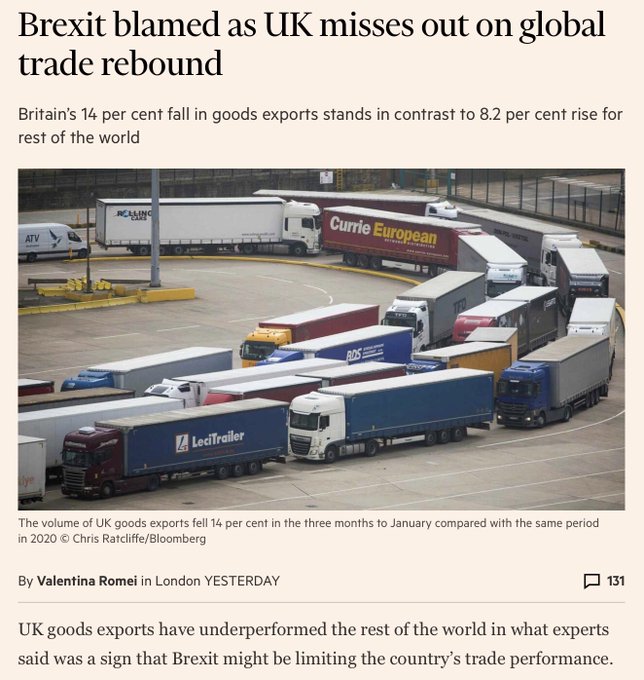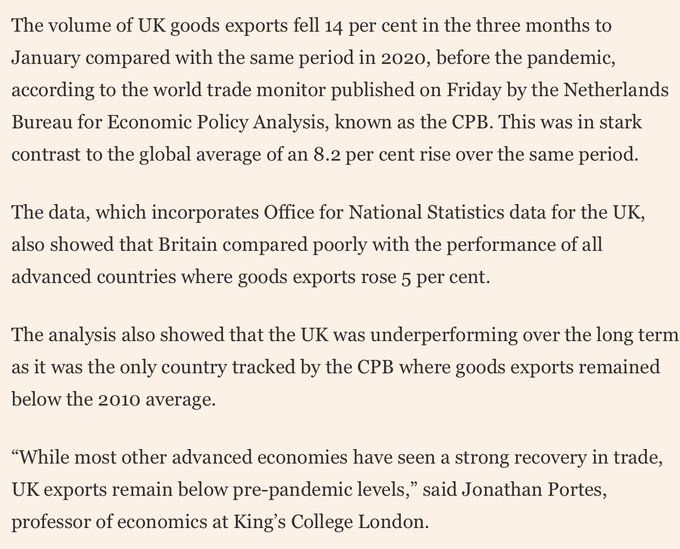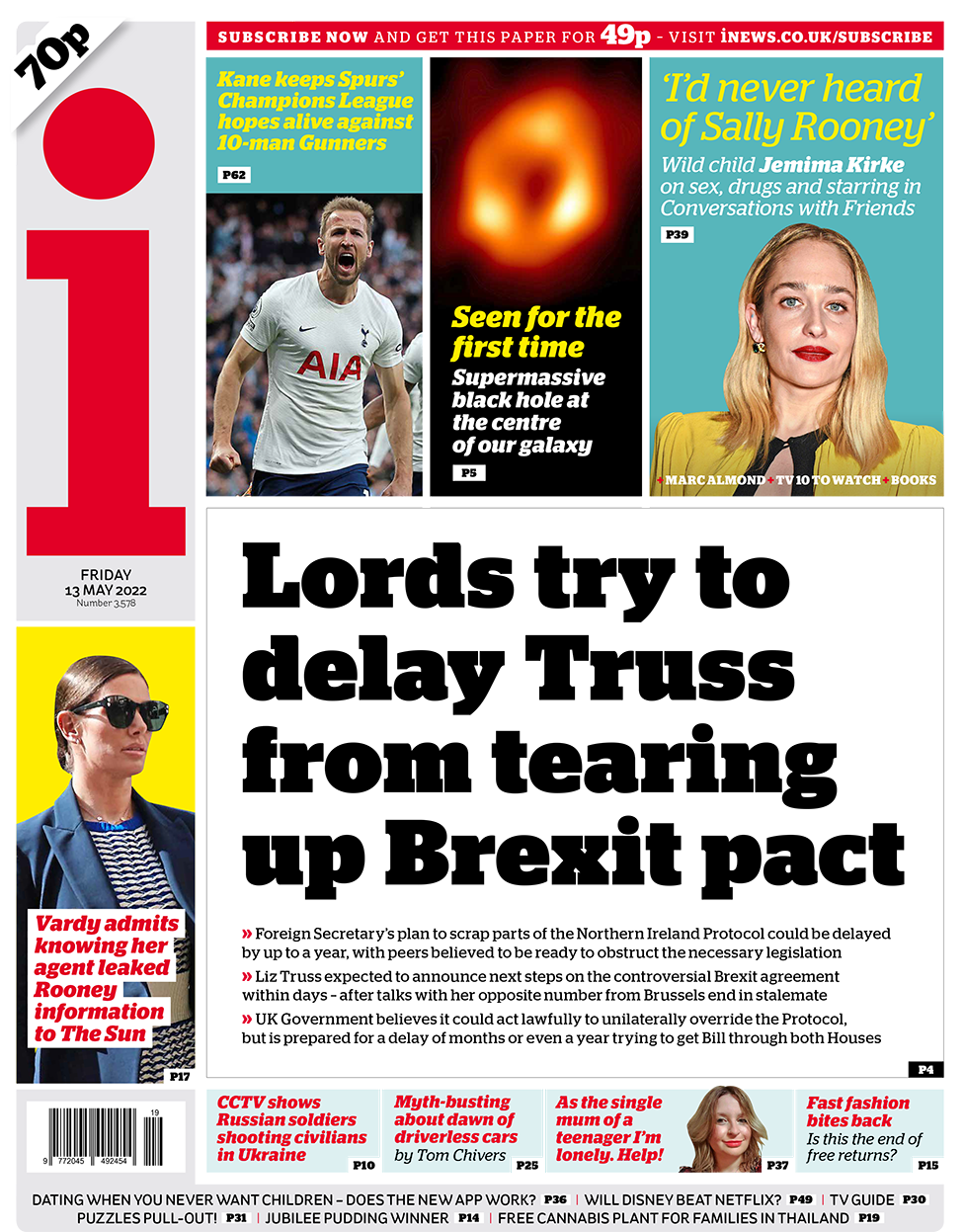A long read, but the reality of what the tories and brexit have done, and are continuing to do to this country.
https://www.gerhardschnyder.com/brex...pest-on-thames
This week I was planning to write about new research on the trade impact of Brexit. However, what happened in Parliament this week was so extraordinary and concerning that I decided to comment on the state of UK democracy instead. Indeed, on 28th April 2022 three bills received Royal Assent which may very well put the UK on the path towards an ‘illiberal democracy’ and worse – an outright autocracy – following the Hungarian model. The three new laws are the Elections Act, the Police, Crime, Sentencing and Courts Act, and the Judicial Review and Courts Act. Taken together, these three laws arguably constitute the most serious attack on British democracy from within since the Blackshirts marched in the streets of London. As such, not the 23 June 2016, the 30 January 2020, or 1 January 2021 should be what Johnson will be remembered for. It should be 28 April 2022 when his government created the conditions for the UK to become an illiberal, authoritarian state.
No doubt, to some readers this will sound like an exaggerated, alarmist ‘Bremoaner hissy fit.’ Yet, I have rarely felt so certain that what we are witnessing is a deliberate attack on democracy carried out by a British government and the governing party. The laws that were adopted this week are so egregious in their anti-democratic nature that there can no longer be any doubt about the intention of the Conservative party led by Johnson. I am so certain of it because I have seen it happen elsewhere – namely in Hungary.
Let me first summarise why these laws are so dangerous for democracy and then make a detour via Budapest to show that it is easy to predict what we have to brace for next.
Policing Act: Curbing the freedom of protest
The first new law limiting our democratic rights is the Police, Crime, Sentencing, and Courts Act (PCSCA). The key reason why this law undermines democracy is that it limits the right to protest and thus freedom of speech and expression of dissent in significant ways. The police are given more wide-ranging powers to limit protests ex ante, most importantly by setting a start and finishing time for any demonstration and by imposing noise limits. The law also increases punishment ex post for not complying with such conditions and for unlawful acts taking place during a demonstration. Most significantly, the PCSCA specifies that ‘damage to memorials’ could be punished by up to ten years in prison. This is a directed reaction to Black Lives Matters demonstrators toppling the statue of Edwards Colston and being cleared of criminal damage. The ruling drew ire of right-wing politicians, organisations, and media outlets, which the government now has used to justify its illiberal bill.
Judicial Review Act: Sticking it to the ‘enemies of the people’
The second law concerns Judicial Review (JR), i.e. the ability for citizens to challenge laws and legislation adopted by parliament and bodies of the state. The Home Office, in an announcement full of self-congratulatory rhetoric, explains that ‘the Judicial Review and Courts Act delivers on a manifesto commitment to ensure courts are not open to abuse and delay and provides much needed flexibility on the outcome of Judicial Reviews (JR).’ What they mean with ‘much needed flexibility,’ of course, is that the judges will now find it harder to hold government to account, which provides the government with the much-needed flexibility to continue regularly breaking the law – both domestic and international.
Indeed, for the Johnson government, judges are one of the most annoying part of British democracy, because they can be less easily controlled than MPs. Both the triggering of art. 50 without parliamentary consent by Theresa May and the prorogation of Parliament in 2019 were challenge in this way and the challenges were upheld by the courts. It therefore comes as no surprise that they have been in the line of fire already during the Brexit negotiations process (cf. the Daily Mail’s infamous ‘enemies of the people’ headline).
Beyond the substance, a point that concerns many lawyers is the way in which the act has voided certain JRs, namely by using an ‘ouster clause’ which ‘ringfences’ governmental decisions and move them beyond the reach of courts. This implies a trend of isolating government from scrutiny and accountability, thus weakening the separation of powers.
To his credit, even former Tory minister and Brexiter David Davies spoke out against the JR bill warning that “[s]uch attempts to consolidate power are profoundly un-conservative and forget that, in a society governed by the rule of law, the government does not always get its way.”
Mind you, the government did not forget about the ‘people.’ To please its voter based, the Johnson government made it clear that the weakening of JR will not only be used to better protect Tory politicians from judicial challenges, but also against immigrants. Thus the Home Office promises that the reform ‘ends inefficient […] ‘Cart’ JRs to minimise delays in immigration, asylum and other cases that have already been refused permission to appeal by judges.’ Cart JRs are reviews launched against decisions by the Upper Tribunal – the UK’s highest court for administrative law appeals –, which now are no longer eligible for judicial review. Such decisions often concern matters of immigration and have allowed immigrants to challenge negative asylum decisions.
Elections: Disenfranchising the young, curtailing civil society
Arguably the most cynical attack on democracy that passed into law this week was the Elections Bill. Under cover of an alleged concern with increasing people’s confidence in the electoral system, the new Elections Act does three things: it introduces the need to show a photographic identity card to be able to vote; it gives the government the power to decide who can and cannot campaign or fund elections; and it reduces the Electoral Commission’s power to investigate electoral fraud (a good summary can be found here).
It is easy to show that the government has not introduced this law to offer British citizens ‘greater protection against election fraud’ or increase public trust in our democracy. Firstly, there is the inherent contradiction between the claim that voter IDs are necessary due to risks of election fraud, while at the same time stripping the Electoral Commission (EC) of its powers to investigate electoral fraud. If electoral fraud and trust in elections were a problem and the government were serious about addressing these issues, would it really weaken the EC? Secondly, there is the simple fact that voter fraud of the sort that voter IDs would prevent (i.e. pretending to be someone else at the polling station) is simply not an issue in this country. As Alina Rocha Menocal points out, ‘[b]etween 2015 and 2019, there were only 88 allegations of in-person voter fraud, out of a total of 153 million votes cast [a]nd the number of convictions is even smaller – a grand total of two convictions and one caution.’ (Rocha Menocal also notes the hypocrisy of Tory MPs who rebelled against the government over Covid19 health passes – comparing them to ‘Nazi Germany’ and claiming that “We are not a ‘papers please’ society” – while now supporting voter IDs).
So, clearly, rather than addressing voter fraud, the government pursues a different goal with this reform, which becomes clear when you look at the socio-economics of voters. It is a well-known fact that it is the poorest and least privileged people who tend not to have passports or IDs. They are therefore the most likely to stop voting when asked to produce an ID card. As such, the reform may be a preventive move by the Tories to make sure the electoral backlash is limited once its promises to the least well-off in the country have been betrayed.
That this reform is an attempt to disenfranchise certain segments of the electorate is further illustrated by the debates about what form of ID are permissible. While the law permits older person’s Oyster 60+ and bus passes as valid voter ID, the same does not apply to Student IDs and 18+ student Oyster cards. What explains that the Oyster 60+ is considered a secure form of ID, why but 18+ student Oyster cards are not? The most plausible explanation is that the government is not particularly keen on young people voting. And that, of course, is for good reasons. In the last General Election, only 22% of under 30s voted conservative, while the proportion is 62% amongst the 60+. So, for an old people’s party it makes perfect sense to discouraging young people from voting by putting additional obstacles in their way to the ballot box. Of course, the government is introducing the possibility for voters without ID to apply for a free local voter document from the Council. But we all know how such things tend to work out: Any additional obstacle to once ability to cast a ballot will create a disincentive to do so, increasing the likelihood of abstention.
There is a good chance that this strategy will work for the Tories. When Northern Ireland introduced voter IDs in 2003, turnout dropped by 2.3% at the next election. The UK as a whole had an electorate of roughly 44.5m people in 2019. If it experienced a reduction in turnout of a similar scale, that would mean that more than 1,000,000 fewer people might turn out to vote. If that drop is much stronger among those segments of the electorate who disproportionately vote for opposition parties, the Tories chance for re-election increase significantly.
Ironically – or rather cynically – the Spectator ran an article this week that praises the emerging benefits of Brexit. Clearly, the authors are struggling to come up with anything concrete to mention other than turning increasing non-EU immigration that I wrote about last week into a Brexit benefit. Yet, they do consider ‘restoring faith in democracy’ as one of the great achievements of Brexit. Indeed, the Spectator asks ‘Has Brexit succeeded in making voters feel more empowered?’ Unsurprisingly, the Spectator thinks the answer is yes. That is pure fantasy. The UK’s ‘first past the post’ (FPTP) electoral system implies that the country is literally always governed by a minority government – not in the usual sense of the term as a government that has less than 50% of the seats in parliament, but in the sense that virtually all British governments since the late 20th century have received less than 50% of the votes during the General Election. In other words, at the best of times the UK’s FPTP system means, most people are not represented by the government. The new electoral laws will only make matters worse for the reasons mentioned above. Therefore, an increasing number of mostly young people will feel ‘voiceless in Westminster.’
One reason for the Voter ID law may be that it has become more difficult for Tories to increase their electoral chances by redrawing the constituency maps (gerrymandering). An interesting article by Charles Pattie and David Rossiter shows that the secular trend of secure labour seats being in areas that tend to lose population, while secure conservative seats were in areas that gain in population size has stopped. As long as that trend was at work, constituency boundaries had to be changed to rebalance the number of seats from less densely populated labour seats to more densely populated conservative ones (because otherwise it would take less votes to elect a Labour MP than a Conservative MP), thus seemingly favouring Conservatives rather than Labour. But these trends have changed recently, which means that ‘it is no longer inevitable that reviews will tend to favour the Conservatives.’ Rather than population trends creating a bias against conservatives if left uncorrected, Pattie and Rossiter observe that the ‘main source of bias in elections over the last 30 years comes not from constituency size effects but from vote efficiency (and abstention).’ The last point is important: if redrawing the electoral map, becomes less favourable to the Conservatives, they may need additional ways in which to increase their chances of being re-elected, such as encouraging abstention by putting obstacles in the way of those segments of the population that tend to vote for Labour and other opposition parties.
Electoral Commission
The second element of the Elections Act that will undermine democracy is the subjection of the Electoral Commission to ‘strategic and policy control’ and the removal of the EC’s ability ‘to bring prosecutions against those who break electoral law relating to parties and campaigners.’ This means the EC cannot ‘take politicians to court over secret donations and illegal campaigning’ anymore, or to investigate electoral fraud independently; and if it does investigate, its work is subject to governmental guidance on specific cases. Here, it is important to note, that the new law does not subject the EC to parliamentary, but to governmental control. For instance, under the law the minister for the constitution to attend meetings of the Speaker’s Committee, the statutory body responsible for holding the Electoral Commission to account, further opening the door to government interference with its work. So, this is not a case of Parliament taking back control, but a case of the government further increasing its powers and isolating the governing party from accountability and scrutiny.
Campaigning
The third effect of the new law is that [t]he minister for the Cabinet Office will be unilaterally able to define what campaigning is and which groups can or cannot engage in the democratic process by campaigning or donating. According to David Howarth, former electoral commissioner, this gives the ‘government the ability to ban whole categories of organisations from campaigning at elections, without adequate parliamentary oversight,’ which he deems to constitute ‘a slippery slope to authoritarianism.’ Recent European history supports this concern.
Orbán’s ‘illiberal democracy’ project
The new laws the government has introduced should genuinely worry anyone who cares about democracy in the UK, but they become even more worrying when put in context of what has happened in other European countries in the past decades. Most importantly, the parallels between the ‘democratic backsliding’ in Hungary under Victor Orbán since 2010 and what Johnson’s Tories are doing in the UK are shocking.
Orbán’s attack on democracy started with the media, then moved on to judges and the courts, then civil society, and finally universities. Right after the election of 2010 Orbán’s government introduced a new Press Law, which created the National Media and Communications Authority that was invested with far-reaching powers ‘to impose heavy fines for vague infractions, including coverage that is unbalanced, or offensive to human dignity or common morals.’ He then proceeded to reshaping the media landscape by transferring ownership of news outlets to a foundation controlled by people close to his Fidesz party. In 2013, a law was adopted limiting power of constitutional court, including allowing the Court only “to challenge laws only on procedural grounds, not on their substance, and scrapping all decisions made by the court before 2012.” Like in the UK, where the Elections Act seems like a punishment for the EC for having held government to account on several occasions, the Hungarian law followed a Supreme Court ruling earlier the same year that blocked a Fidesz proposal to change voter registration rules in its favour. Then came attacks on NGOs and civil society organisations, which were both subject to public campaigns denouncing them as foreign agents and making them subject to surveillance and investigation by security services. In combination with a long list of other legal reforms, the result has been that ten years into his reign, Orbán’s Hungary has not become an ‘illiberal democracy, but rather it cannot be considered a democracy at all.
Indeed, by 2022 Orbán’s power has become so entrenched that even six opposition parties supporting the same candidate was not enough to prevent him from gaining a 2/3rd majority in parliament. Democratic backsliding does not necessarily mean that there are no elections. It means that the elections are stacked so much against opposition parties that whatever they do, the government cannot be removed from power through elections. That does not mean that that outcome is what ‘the people’ want. It means that the system is such that the voices of those people who have the ‘right’ opinion are being amplified, while those who have diverging opinions are being harassed, ridiculed, and ultimately drowned out by government propaganda.
It is also noteworthy that Orbán of course did not invent from scratch his strategy of turning Hungary into an ‘illiberal democracy.’ Rather, he had himself closely followed in the footsteps of one of his avowed idols: Russia’s Vladmir Putin.
What’s next for Britain? On a highway to Budapest-on-Thames
Of course, the details of Hungary’s and the UK’s path to illiberalism differ, as the policies adopted in each country were adapted to their specific contexts and existing political systems. Importantly, Johnson’s first move was not to try and bring the media under control. Presumably, because a large part of them is already supporting the right-wing fringe of the Tory party. Still, if the thesis that Johnson has put the UK on the path – indeed on a highway – to an ‘illiberal democracy’ is correct, then we can glean further insights from the Hungarian case to predict what will happen next.
While increasing their control over the media is not a key priority for the Tories, independent reporting still constitutes an annoyance that would better be stomped out. The increasing use of strategic lawsuits against public participation (SLAPP) against journalists is one sign of that starting to happen. However, the government’s assault on the BBC is an even clearer sign of the fact that the government is willing to crack down on dissenting voices in the media. On this blog, I have been very critical of the BBC’s coverage of Brexit-related issues (e.g. here). Admittedly, – due to my frustration with reporting for instance on labour shortages or lorry queues that mention the pandemic and global supply chain problems but not Brexit – at times my criticism has been too harsh. While the BBC has at times fallen short of what I would consider a critical and balanced view on the issue, it does remain a key pillar for British society and democracy. That conclusion is reinforced if comparing the BBC not to what I would ideally want to see journalists do, but to what else is out there in the British mediascape. In comparison to some of the private news outlets, the BBC has always been and remains a massively important source of affordable quality information and commentary. That status is increasingly under threat. Indeed, also this week the pro-Tory press celebrated the coming scrapping of the licence fee, which will mean the BBC will become less independent and more reliant on other sources of funding, which most likely will mean commercial goals – rather than quality journalism – will be driving the Corporation in the future.
There may be other parallels emerging from Johnson following the Orbán playbook, notably the willingness to interfere with universities in order to silence critical academic voices. Orbán has forced the Central European University to relocated from Hungary to Austria. The UK government has also shown that academic freedom is something it is willing to interfere with, as is illustrated by the attempt to have Vice Chancellors report people teaching Brexit in universities and by the imposition of its own version of ‘free speech’ on universities. As the government becomes more entrenched it is highly likely that such attacks will further increase, threatening academic freedom and science.
Another interesting effect of Orbán’s illiberalism is that it has arguably contribute to a ‘brain drain’ of young skilled workers from Hungary, which in turn has led to labour shortages diminishing the attractiveness of Hungary as a destination for foreign companies, especially in high value added manufacturing sectors. The ‘brain drain’ is partly explained by higher salaries in other EU countries, but arguably also related to the increasingly authoritarian political context that leads young Hungarians who are critical of the government to seek a better future abroad. The labour market has become so tight that the government felt compelled to introduce a law that allows employers to force employees to work overtime. Reducing workers’ rights to address home made labour shortages very much sounds like something that the Johnson government may soon copy from the Hungarian populists.
Labour Day – but not Labour’s week
With UK democracy under attack, where is the opposition in all of this? Sadly, it is nowhere to be seen. Rather, Labour is struggling to draw any benefits from the Tories self-inflicted wounds in the forms of a never ending stream of scandals (including one being found guilty of sexual assault and another one having to resign under pressure for having watched pornography in parliament). Rather, the Tories’ strategy to drag the Labour party down into the gutter with it seems to be working. Faced with inexcusable behaviours and scandals, the Conservatives’ strategy is to dig up dirt on oppositional MPs or craft comparable scandals involving opposition politicians to show the public that the other side is no better. This week, the Daily Mail revealed that Labour deputy Angela Rayner was present at the same occasion during lock-down where Labour leader Starmer had been photographed with a beer bottle in his hand. Durham police had already decided not to investigate the event, but Tory MPs are urging them to review the decision. Regardless of what happens next, the story will be enough to create a ‘Beergate’ scandal that can be used to minimise the government’s lockdown parties in Downing Street. Using Beergate to counter Partygate, may be a good electoral strategy for the Tories, but it will result in many voters feeling reinforced in their belief that ‘all politicians are the same.’ What that does, of course, is sounding the death knell of democracy as Alexandra Hall pointed out.
What leaves one even more desperate in the current situation is that Labour does not only let itself be dragged into the same mud that the government is wallowing in, but also do they not seem particularly concerned about the threat to democracy that the Tories are posing. Thus, during the vote on the elections Bill in the House of Lords earlier this week, just 67 of the 168 Labour peers showed up to oppose the government. I am yet to find a plausible explanation for such a poor turnout on such an important matter.
What’s Brexit got to do with it?
Brexit is now an officially recognised as a disaster, with the Brexit Opportunities and Government Efficiency Minister (BOGEMin) Rees-Mogg now openly admitting that introducing the border checks on imports made necessary by hard Brexit were an act of self-harm. Brexit is particularly disastrous in economic terms as Chris Grey has documented this week. But of course, the goal of Brexit was never economic. Its real goal is much better encapsulated in the ‘taking back control’ slogan.
Except that the leading Brexiters’ intention never was to give back control to ‘Britons,’ ‘the people,’ or even to Parliament. The only ones ‘taking back control’ are the motley crew of libertarian anti-state rentiers, aristocrats, and political chancers who have made a career out of stirring up hatred and resentment to divide the country and entrench their own power and wealth. Without Brexit many of these people would not be where they are today. Brexit is the only reason why Johnson has become PM; and few people would put any money on any of the current cabinet ministers being in the position they are had they been appointed based on skill, experience, or capability, rather than unconditional loyalty to the PM and the hard Brexit project.
So, personal career advancement was clearly one reason why certain people turned Brexiters. Yet, this week revealed another, more substantive reason, why exciting the EU was instrumental for the Brexit coalition to achieve their goals; namely to remove any barriers to their pursuit of unlimited wealth and power.
Of course, the EU has done too little to prevent Orbán from turning Hungary’s weak and young, but still promising, democracy into a quasi-authoritarian state. Indeed, Orbán’s approach to the EU has been a very astute one. He uses criticism of ‘Brussels’ as an effective rhetorical device to create an external enemy, while not criticising the EU itself very much (which remains popular in Hungary) and while continuing drawing large sums of money from the EU structural funds that can be used for his populist domestic policies shoring up electoral support. At first glance, the UK’s authoritarians’ approach was less habile in the sense that they cut themselves off EU funding and created a whole lot of economic problems that make their populism economically more difficult to implement. On the other hand, exiting the EU has cut the government free from any – however weak – influence of the EU over democratic backsliding in the UK. In the Hungarian case, the EU does now seem to take things a bit more seriously launching a Rule of Law procedure against the country that could result in cutting EU funding. Thanks to Brexit, the UK’s authoritarians do not have to fear any such direct interference by the EU.
This post should not be read as ‘Conservatives bashing.’ I am actually not opposed to conservatives or conservatism per se. I have read books by Roger Scruton and fully accept that conservatism is a perfectly legitimate position to have in a democracy, even if I do not share many of its values. But what we are currently witnessing is not about democratic conservatism. This is about something very different. Namely anti-democratic authoritarianism. There may still be people who believe that the promise of ‘illiberal democracy,’ which as has become clear this week is part of the Brexit project, is somehow a popular corrective to a cosmopolitan liberal elite project that ‘ordinary people’ cannot identify with. It is nothing of the sort. ‘Illiberal democracy’ is a rhetorical device to sell authoritarianism and autocracy to voters in a democratic system. It is a way of making the Turkey vote for Christmas. The ultimate goal of the project is purely and simply to entrench the wealth and power of a small elite who own most of our media and control the Tory party and government. This week has shown that they will stop at nothing to achieve that goal. With the changes to our democratic institutions that they pushed through this week, they have come an important step closer to achieving that goal.
Readers may find it hard to believe that a democratically elected government in a Western European country would have such sinister plans; and I was often wondering if I am being overly pessimistic. But this past week has dissipated any remaining doubts. The writing is on the wall. The signs are too obvious and too familiar to someone who has spent considerable time analysing how democratic backsliding happened elsewhere. The people in Hungary in 2010 did not believe it; The people in Russia in 2000 did not believe it either. They thought that there were things Orbán and Putin would not do. They thought that their governments’ thirst for power and wealth had some limits. They thought there was some genuine concern for the ‘common people.’ They were wrong. It is high time that we in Britain learn the lessons from those experiences and understand that soon there will be nothing that can stop the power grab by the Tory party. When that happens, Brexit will go down in history as the project that was meant to wreck the EU, but instead wrecked one of the World’s oldest democracies.








































 Linear Mode
Linear Mode

